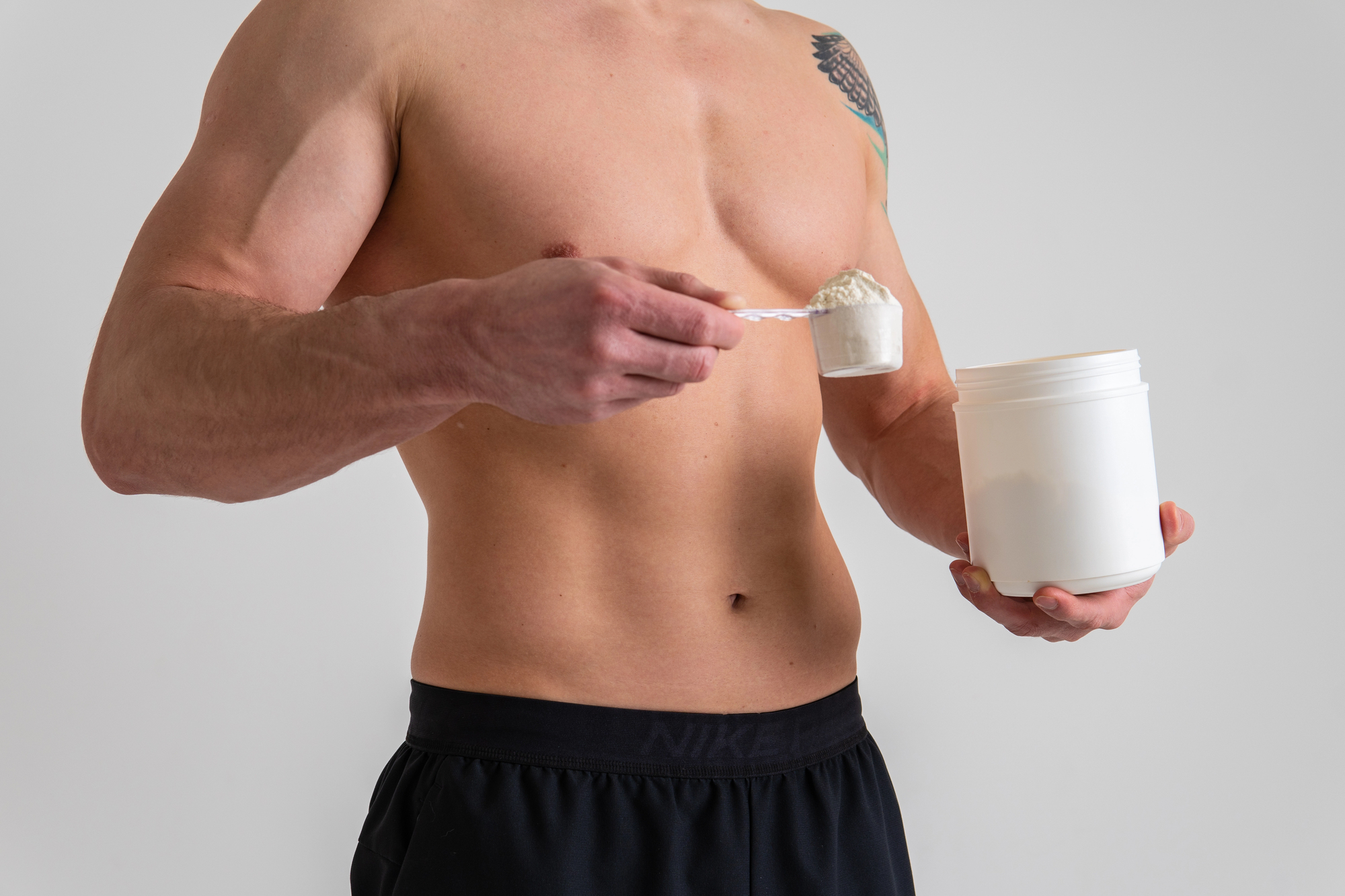Probiotics are live bacteria and beneficial microorganisms that help maintain the balance of the microbiome in the body, particularly in the gut. Research has shown that probiotics provide general health benefits for everyone and offer special effects for men. Let’s explore the benefits of probiotics for men and learn how to choose the right probiotics for men.
Key Takeaways
- Probiotics can support digestion, the immune system, mood, hormones, and many other aspects of health.
- Seven common microorganisms used in probiotic products include Lactobacillus, Bifidobacterium, Saccharomyces, Streptococcus, Enterococcus, Escherichia, and Bacillus.
- Despite their many beneficial characteristics, probiotics can also have some side effects.
- You can get probiotics from natural foods.
Health Benefits of Probiotics for Men
Digestive Health
When we think of probiotics, we often first consider digestive health, right?
The gut microbiome is crucial for health. It helps us boost metabolism and improve the immune system, thus enhancing overall body health.
More and more people are turning to prebiotics and probiotics to maintain or restore bacterial balance. An imbalanced microbiome can lead to digestive issues such as bloating, constipation, indigestion, etc. Regular probiotic supplementation helps improve digestive function and enhance nutrient absorption.
Probiotics have also been shown to help maintain gut microbiota, improve digestive issues, and, as a result, boost the immune system, metabolism, and mood. Probiotics help maintain the gut microbiome balance, thereby supporting digestion and preventing issues like bloating, constipation, and indigestion.
Recent studies have also shown that probiotics effectively treat issues such as antibiotic-associated diarrhea, Clostridium difficile infection, and irritable bowel syndrome. Additionally, it is suggested that probiotics may also support the treatment of chronic acid reflux in men.
Immune System Support
Approximately 80% of the human immune system is located in the gut, so maintaining a balance of beneficial bacteria helps enhance immune function.
The mechanism of action of probiotics helps stimulate the production of antibodies, particularly IgA – an antibody found in the intestinal mucosa. IgA helps prevent bacteria and viruses from entering the body through the digestive system. Beneficial bacteria like Lactobacillus and Bifidobacterium can promote IgA production, thereby boosting the body’s natural “shield” – the immune system.
Probiotics can help protect the body against pathogens, especially in vulnerable areas like the nose, throat, and lungs. Research has shown that probiotics can help reduce children’s recurrent colds and respiratory infections. When using probiotic ENT-K12 alongside standard medical treatment, the frequency of illness in children decreases, the duration of illness is shorter, and antibiotic use is reduced.
It is evident that probiotics are very effective in preventing the growth of pathogens. They help improve the gut’s protective barrier and stimulate immune cells to function better. When taken orally, probiotics also promote the production of beneficial immune cells, helping to naturally balance the body’s immune response.
Mental Health and Mood
Preliminary research in humans and animals suggests that probiotic strains such as Lactobacillus and Bifidobacterium may reduce anxiety in the central nervous system.
Recent studies indicate that probiotics can help improve mental health, particularly in treating depression. Although the research is still new, promising results suggest that probiotics may regulate gut bacteria and reduce inflammation, thus effectively alleviating depressive symptoms.
Probiotics have also been shown to help manage stress and decision-making. They work by altering the gut microbiome, which affects brain health. Although initial studies are very promising, more clinical trials are needed to better understand the impact of probiotics on mental health and cognitive function.

Metabolic Health
As mentioned earlier, probiotics can improve gut health and prevent metabolic diseases such as diabetes, obesity, dyslipidemia, metabolic syndrome, gout, and many other conditions.
Other metabolic-related benefits of probiotics include:
- Improving gut barrier function: Helps prevent harmful substances from entering the body.
- Regulating the immune system: Reduces inflammation and boosts immunity.
- Producing beneficial metabolites, such as short-chain fatty acids, improves gut health and metabolism.
- Enhancing blood sugar control: Particularly in diabetic patients.
Other studies also show that probiotics can slightly improve the condition of individuals with metabolic syndrome. However, it’s important to remember that these beneficial bacteria cannot replace medication treatment, so don’t overuse them.
Prostate Health
Statistics show that about 1 in 22 men suffer from chronic prostatitis, a common risk factor leading to bladder inflammation and urethritis.
Research has demonstrated that this combination of beneficial bacteria and natural ingredients can reduce bacterial prostatitis. It modulates the immune system, reduces inflammatory responses, and protects the prostate.
By supplementing with probiotics, scientists have observed a significant reduction in harmful bacteria in the urinary tract of men with prostatitis. This indicates that probiotics can support a healthy urinary microbiome, thereby reducing inflammation and improving unpleasant symptoms associated with the condition.
May Influence Testosterone Levels
The gut microbiome plays a crucial role in regulating hormones such as oxytocin, which helps maintain testosterone levels in men and supports functions like libido and masculine characteristics.
Probiotic supplementation helps maintain gut stability. Many studies also show that probiotics can influence men’s testosterone levels.
The probiotic Lactobacillus reuteri significantly improves reproductive health in aged mice. Research results indicate increased testosterone levels and larger testicle size. This suggests that probiotic supplementation could be a natural and potential method to prevent sexual function decline in men.
Another study shows that probiotics can restore testosterone levels and improve reproductive function in male mice affected by the antibiotic Ciprofloxacin. Probiotics play an important role in protecting the testicles by reducing oxidative stress and inflammation.
What Are The Best Probiotics For Men?
Probiotics are identified by specific strains of microorganisms, including genus, species, subspecies (if applicable), and strain identification codes. Seven common genera used in probiotic products include Lactobacillus, Bifidobacterium, Saccharomyces, Streptococcus, Enterococcus, Escherichia, and Bacillus. These beneficial bacteria help support men’s health comprehensively.
A study has mentioned some probiotic strains suitable for men, including:
- Lactobacillus rhamnosus
- Lactobacillus casei
- Lactobacillus bulgaricus
- Lactobacillus acidophilus
- Lactobacillus paracasei
- Bifidobacterium breve
- Bifidobacterium longum
- Streptococcus thermophilus

These strains have been researched and shown to have special effects on maintaining hormone health, digestion, and immunity for men.
Role of Probiotics in Male Health
Differences in what do probiotics do for men and women
| Characteristic | Women | Men |
| Reproductive organ location | Lower abdomen, more affected by digestive issues | Less directly affected by digestive issues |
| Digestive disorders | More common | Less common |
| Stress perception and response | More sensitive, affects digestion | Generally less affected |
| Common digestive issues | Menstrual cramps, irritable bowel syndrome, vaginal infections, yeast infections | Acid reflux, stomach ulcers, support and enhance reproductive capability |
Specific probiotic strains beneficial for men
Seven common genera of microorganisms used in probiotic products include Lactobacillus, Bifidobacterium, Saccharomyces, Streptococcus, Enterococcus, Escherichia, and Bacillus. These strains support digestive health and play a significant role in hormone balance and cardiovascular health.
If you’re looking for probiotics that support male reproductive health, particularly for those dealing with infertility, consider:
- Lactobacillus rhamnosus
- Lactobacillus casei
- Lactobacillus bulgaricus
- Lactobacillus acidophilus
- Lactobacillus paracasei
- Bifidobacterium breve
- Bifidobacterium longum
- Streptococcus thermophilus
These beneficial bacteria have been shown to improve sperm parameters such as motility, count, morphology, and semen quality. Additionally, they help reduce sperm damage caused by oxidative stress and protect sperm DNA, thereby enhancing reproductive health in men.
How to Choose Probiotics for Men
When selecting probiotics, men should look for products that contain proven effective strains. The International Scientific Association for Probiotics and Prebiotics recommends that manufacturers list the total CFU (colony-forming units) on the product label.
You should also avoid products that do not specify the CFU count at the time of manufacture, as this information does not reflect the decrease in CFU over the product’s shelf life.
Check the product label for storage conditions. Some products need refrigeration, while others can be stored at room temperature.
Safety and Side Effects of Probiotics for Men
Many probiotic strains come from microorganisms with a history of safe use in food or from a healthy gut microbiome. Strains like Lactobacillus and Bifidobacterium are generally considered safe for healthy individuals.
However, probiotics can have some side effects. Notable side effects include:
- Mild digestive discomfort such as bloating, constipation, diarrhea, etc.
Probiotics may be harmful to certain groups of people, such as:
- Premature infants: Risk of death due to infection or serious illness when using probiotics.
- Individuals with weakened immune systems or serious illnesses: Risk of sepsis or fungal infections.
The FDA has warned that using probiotics in premature infants may be fatal and recommends further research.
Cases of infections and fungal infections have been reported related to probiotic use, particularly in individuals with compromised health or those in intensive care units (ICU).
The World Gastroenterology Organization (WGO) recommends using only proven effective and safe probiotic strains for individuals with weakened immune systems.

Should Men Take Probiotics Daily?
With their growing popularity, many people choose to incorporate probiotics into their daily diet. But the question arises: Is daily probiotic use truly safe?
The good news is that regular probiotic consumption is generally safe for most people. Strains like Lactobacilli and Bifidobacteria have been extensively studied, mostly without serious issues. If you have concerns about specific probiotics, consulting your doctor is advisable.
Men can incorporate probiotics into their daily diet through supplements or fermented foods. This helps optimize gut health and contributes to overall well-being and health.
However, there are rare cases related to bloodstream infections or fungal infections, particularly in individuals with weakened immune systems or special health conditions.
To ensure peace of mind when adding probiotics to your daily routine, it is important to choose products from reputable sources and discuss any health concerns with your doctor.
How To Incorporate Probiotics Into Men’s Diet
Natural Probiotics For Men
Some natural probiotics for men include:
- Yogurt: Provides probiotics and improves digestive, bone, and heart health. Choose yogurt with live bacteria.
- Kefir: A fermented milk drink that contains a variety of bacteria and yeast, beneficial for digestion and bones.
- Sauerkraut: Fermented cabbage, rich in vitamins C and K. Opt for unpasteurized varieties.
- Tempeh: Fermented soybeans, high in protein and vitamin B12, ideal for vegetarians.
- Kimchi: A Korean dish made from fermented cabbage supports digestion and is rich in vitamins.
- Miso: A fermented soybean seasoning good for cardiovascular health and blood pressure.
- Kombucha: A fermented tea drink that may be beneficial for health, though more research is needed.
- Pickles: Provides probiotics and vitamin K. Avoid those made with vinegar.
- Fermented Sauerkraut: Good for digestion and provides vitamins A, C, and K.
- Traditional Buttermilk: The liquid left after churning butter contains probiotics and vitamins.
- Natto: A Japanese fermented soybean product, rich in vitamin K2, beneficial for bones and heart.
- Cheese: Varieties like cheddar and mozzarella can contain probiotics, which are beneficial for health.
Supplement Options And Dosage Recommendations
In addition to natural foods, men can choose probiotic supplements such as capsules, powders, and liquids, which typically contain live microorganisms.
The dosage of probiotics is measured in colony-forming units (CFU), with common amounts ranging from 1 to 50 billion CFU per dose. However, a higher CFU count does not necessarily equate to better health benefits. Select a product matching your needs and health conditions. Consulting with a healthcare provider can help you make the best choice.
Conclusion
Probiotics help maintain a healthy digestive system and offer numerous benefits for men, including immune support, hormone balance, and mental well-being. Incorporating probiotics into your daily diet can significantly affect overall health, especially when using well-researched bacterial strains. Consider adding probiotics from natural food sources or high-quality custom supplements for the best results.



